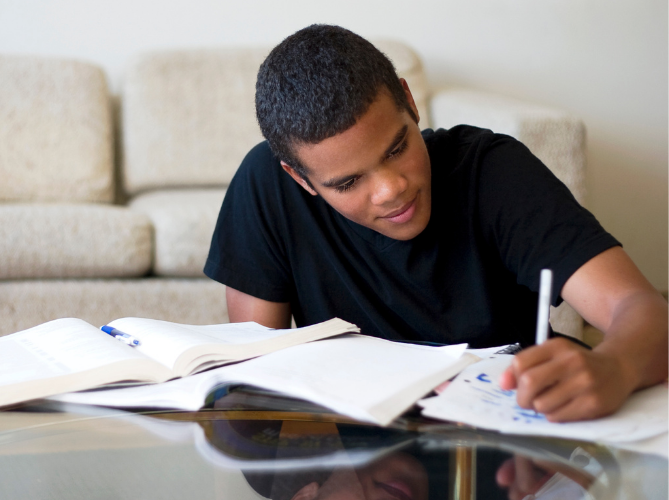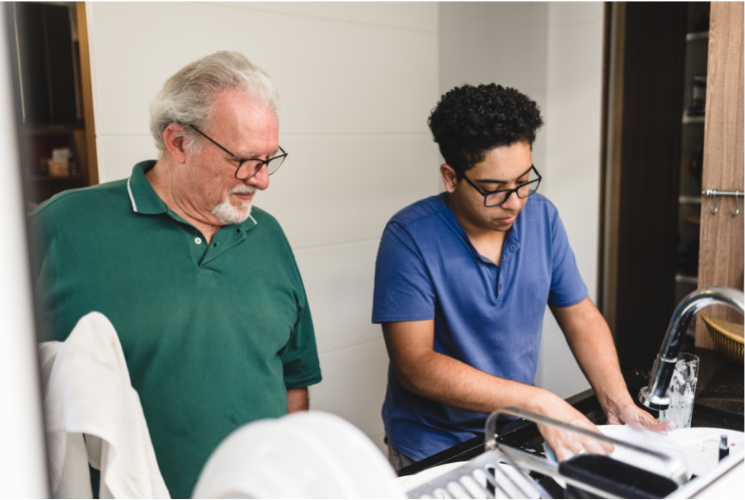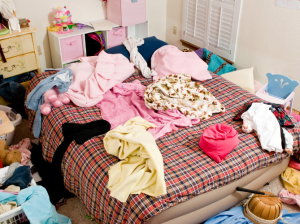Author: christina
Psychology Today: How to Find a Therapist for Your Teenager
Intrepid Ed News: Connect more, argue less: The 5C’s of ADHD parenting
22 News Mass Appeal: Helping kids make and keep friends
ADDitude Mag – You Are Worthy of Self-Compassion: How to Break the Habit of Internalized Criticism
YourTango: What You Can Do When Your Child’s ADHD And Defiance Makes You Want To Yell – Reprinted
*A YourTango Experts Weekly Best!*
“ADHD and defiance can be a tricky combination. There are so many facets to kids with ADHD. Yes, they are creative, passionate, and smart. Yes, they can also be distractible, energetic, impulsive, intense, and strong-willed. And yes, going back to school amidst the surge of Covid-19 is making things that were previously challenging harder in many ways and adding new hurdles.”
Read Dr. Saline’s article on YourTango. Read the original blog post by Dr. Saline. 
Starting Tasks with ADHD: How to help kids and teens feel motivated to get the ball rolling!
 Have you ever asked your teen with ADHD to start their homework–over and over–and, still, they don’t sit down to do it? Even if they’re failing the class, and it means they won’t be able to play on the basketball team? Even if it means that they won’t be able to go out on Friday night? It’s hard not to become immensely frustrated with their behavior at this point. But, most often, starting tasks with ADHD is challenging because they lack the motivation, either internal or external, that would get them going. How can you, as their parent, assist them in developing much-needed motivation?
Have you ever asked your teen with ADHD to start their homework–over and over–and, still, they don’t sit down to do it? Even if they’re failing the class, and it means they won’t be able to play on the basketball team? Even if it means that they won’t be able to go out on Friday night? It’s hard not to become immensely frustrated with their behavior at this point. But, most often, starting tasks with ADHD is challenging because they lack the motivation, either internal or external, that would get them going. How can you, as their parent, assist them in developing much-needed motivation?
Internal vs. External Motivation: Getting to the starting line
Let’s first reflect on ourselves and what helps us do things.

It’s easy to do something you like, whether it’s reading an engrossing novel or playing tennis on a sunny day. It is MUCH harder to do something that you don’t like, such as folding laundry or taking out the trash.
When a task is fundamentally unrewarding or uninteresting, we are not very compelled to do it. We lack internal motivation.
When a task doesn’t have meaningful deadlines or immediate consequences to get us started (i.e. your boss expects the report tomorrow), it lacks external motivation. In both cases, we have to find something to get us going, and neurotypical adult brains rely on fully matured frontal lobes to do so.
Why your child or teen with ADHD struggles to start tasks
Children and teens with ADHD have not yet developed the executive functioning skills to overcome poor focus, disinterest or boredom to get unpleasant tasks done. They often do not possess the strategies or solutions to address either internal or external motivation deficits. If something seems unappealing, they turn away from it–even if the consequences are serious.
Most kids have to rely on external rewards to rouse themselves. Internal motivation, and the satisfaction a person receives when a dreaded task is completed, comes later– in early adulthood. So children and teens need help from adults in their lives to create external rewards that are both meaningful and encouraging.

3 simple steps to get your child with ADHD feeling MOTIVATED:
1. Talk about the concept of external motivation
Most ADHD children and teens will acknowledge when they struggle with focusing and what tasks lack inherent interest or value for them. Ask what has assisted them in doing such things in the past and what would entice them to do them now.
2. Decide in advance with your child what the rewards will be for finishing something that is difficult to do
For example, if your son finishes his history project on time, maybe he can go out for pizza with his friends. Or, if he works for 30 minutes, he can earn 10 minutes of social media or music time.
Do not remove the agreed upon reward if he engages in a separate behavior that you don’t like. If he earned the reward for doing the agreed-upon activity, then he should have it.
3. Break the task down
Remember: Most ADHD kids and teens have a great deal of difficulty starting something unpleasant because the task seems too large. Break it down into smaller components with timed rest periods during which your child or teen can engage in a desired activity.
Putting it all into practice: Helping your kid with ADHD start tasks — without the arguments.
Let’s say, for example, your 12 year old daughter’s room is a mess. It’s been in this state for a few weeks now, and you’re anxiously waiting for her to at least get started on cleaning it up.
Your perspective:
 Now, as an experienced adult who has cleaned many rooms in your lifetime, you can easily see what needs to get done–especially if you’re neurotypical. You can quickly imagine an order in which she could complete the steps and about how long each task would take.
Now, as an experienced adult who has cleaned many rooms in your lifetime, you can easily see what needs to get done–especially if you’re neurotypical. You can quickly imagine an order in which she could complete the steps and about how long each task would take.
You can also imagine the final product: a beautiful, comfortable and welcoming bedroom. It’s a delightful, desirable, intrinsically motivating outcome that would keep you pushing through the tedious tasks of cleaning and organizing.
Your daughter’s perspective:
Your neurodivergent daughter, on the other hand, doesn’t see the task of cleaning her room from your perspective. She has a harder time seeing the project in small steps and is immediately overwhelmed with the thought of starting anywhere.
It seems like there’s too much to handle because there’s more than she can tackle at one time. She’s having a hard time seeing the smaller steps involved that she could work on here and there. She’s also struggling to imagine organizing her room more efficiently. With school books to read, friendships to grow and soccer games to win, she’s not focusing on a cleaning project that involves more internal motivation than external.
Step 1: Before approaching her about your concern, ask yourself it it’s the right time.

Are you going to push the topic because of your discomfort of walking by a messy room, or because you think a more organized room would genuinely help her?
Is she is the right headspace to consider tackling her room? For instance, it wouldn’t be best to bring up the topic during a day that she’s feeling stressed about an upcoming exam. And, even if you’re familiar with the mood-boosting effects cleaning and organizing can bring, don’t ask her to focus on cleaning her room when she’s in a low mood after a disagreement with a friend. Unless they know they enjoy cleaning, another activity would be more comforting in that moment. For someone who has ADHD, feeling physically, mentally or emotionally drained will only make it more difficult for them to engage their executive functioning skillset.
Step 2: Bring up your concern, and listen to her side of the story, too.
 Sit down with your daughter and discuss your concern with her bedroom. Ask her how she feels about it. Does it bother her? Does she have a method of organization that works for her, even if you don’t understand it? Help her understand the potential benefits of a clean, inviting room; for herself, her guests and your family. See if she feels a difference between walking into a clean room (you can use yours as an example) and a disorganized room.
Sit down with your daughter and discuss your concern with her bedroom. Ask her how she feels about it. Does it bother her? Does she have a method of organization that works for her, even if you don’t understand it? Help her understand the potential benefits of a clean, inviting room; for herself, her guests and your family. See if she feels a difference between walking into a clean room (you can use yours as an example) and a disorganized room.
Step 3: Brainstorm a plan and solutions to any organizational changes that need to be addressed.
If she’s feeling stuck with where to start, write a list of the smaller steps that make up the project as a whole. Ask if there are ways you can help reorganize her room. Is it time for a bigger bookshelf? Can you offer a trip to the local donation center to drop off some old clothes and free up more space in her closet?
Step 4: Build on external motivation.
Rather than promising more items that will only add to the organization project, perhaps plan a fun weekend outing together when you can drop off the clothes. You can pick up some ice cream or stop by their cousin’s house for a visit. What is an activity that she’ll genuinely enjoy, and perhaps help you both connect more positively?
Step 5: Plan how long you’ll tackle each step.
Think realistically together about how long she can actually work before she gets distracted. Let’s say, 20 minutes. Set up three 20 minute work periods with 5 minute movement, snack or bathroom breaks.
 Remember, your child or teen might need help figuring out where to begin, or they might want you to stay in their room to help guide them through the process. Your skills, ideas and encouragement can be a key to their success! Good luck with your efforts, and let’s get started!!
Remember, your child or teen might need help figuring out where to begin, or they might want you to stay in their room to help guide them through the process. Your skills, ideas and encouragement can be a key to their success! Good luck with your efforts, and let’s get started!!
Read more blog posts:
- Planning and Prioritizing Practices for ADHD Brains: What’s the plan, and when do you start?!
- Personal Project Planners for ADHD Minds: Start managing tasks, time and ideas with this creative tool!
- ADHD and Motivation: How stress reduces productivity and what you can do about it
Watch on Dr. Sharon Saline’s YouTube Channel:
-
- Initiating and Completing Tasks with ADHD (ADDitude Mag ADHD Q&A with Psychologist Dr. Sharon Saline)
- Planning and Prioritizing with ADHD (ADDitude Mag ADHD Q&A with Dr. Sharon Saline)
- 4 Tips to Boost Motivation in Kids and Teens (WWLP 22 News Mass Appeal Interview with Dr. Sharon Saline)
Deeper Dive: https://drsharonsaline.com/product/motivation/ https://drsharonsaline.com/product/home-seminar/
Totto Learning: Are you worried your child has ADHD? Here are the next steps.
 Hear how Dr. Sharon Saline explains what the first few steps as a parent you can do if you are worried that your child has ADHD and learn best practices for better parenting. – Totto Learning. Watch the video:
Hear how Dr. Sharon Saline explains what the first few steps as a parent you can do if you are worried that your child has ADHD and learn best practices for better parenting. – Totto Learning. Watch the video: Totto Learning: Symptoms of ADHD in Children
22 News Mass Appeal: Know the bullying warning signs
 (Mass Appeal) – Every kid will experience some type of bullying in their childhood. Today on Mass Appeal, we discuss what you should be aware of for warning signs and what you can do to stop and prevent it. Clinical psychologist, Dr. Sharon Saline, breaks down the important facts to know. Originally broadcasted here at wwlp.com.
(Mass Appeal) – Every kid will experience some type of bullying in their childhood. Today on Mass Appeal, we discuss what you should be aware of for warning signs and what you can do to stop and prevent it. Clinical psychologist, Dr. Sharon Saline, breaks down the important facts to know. Originally broadcasted here at wwlp.com. 


